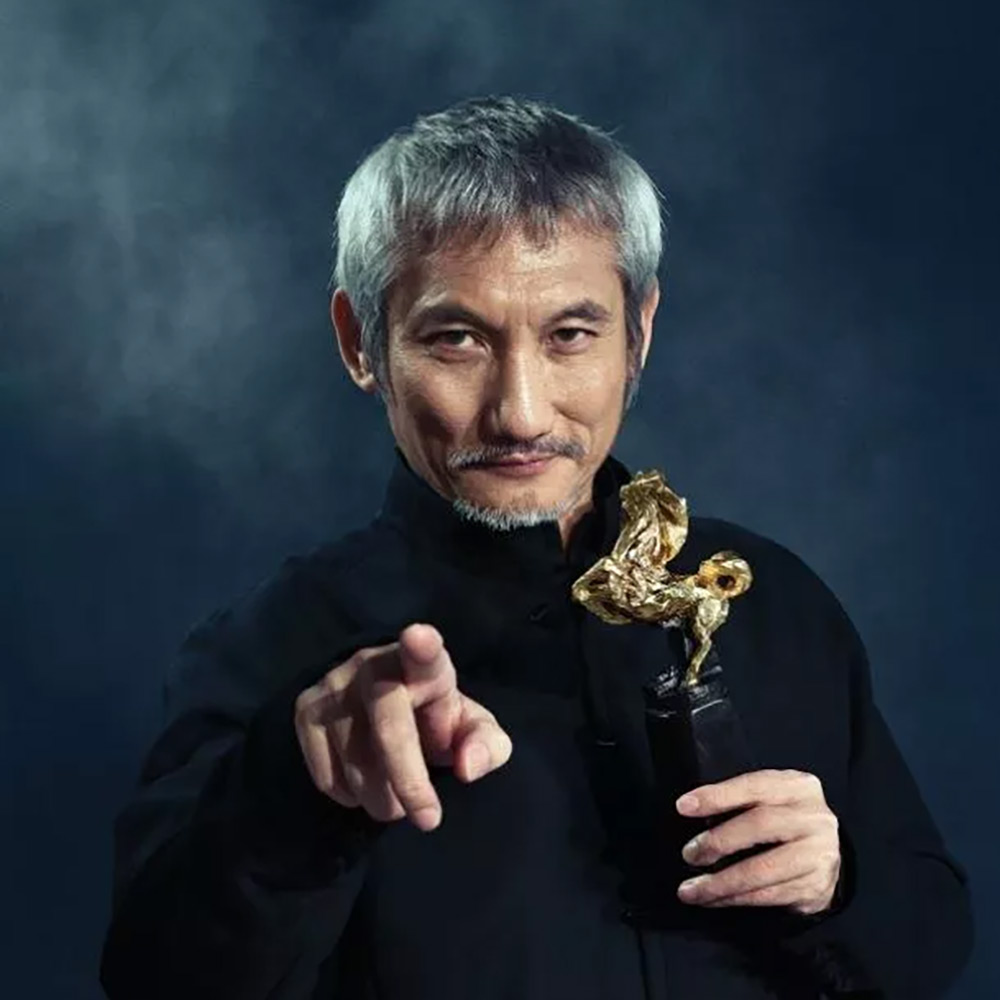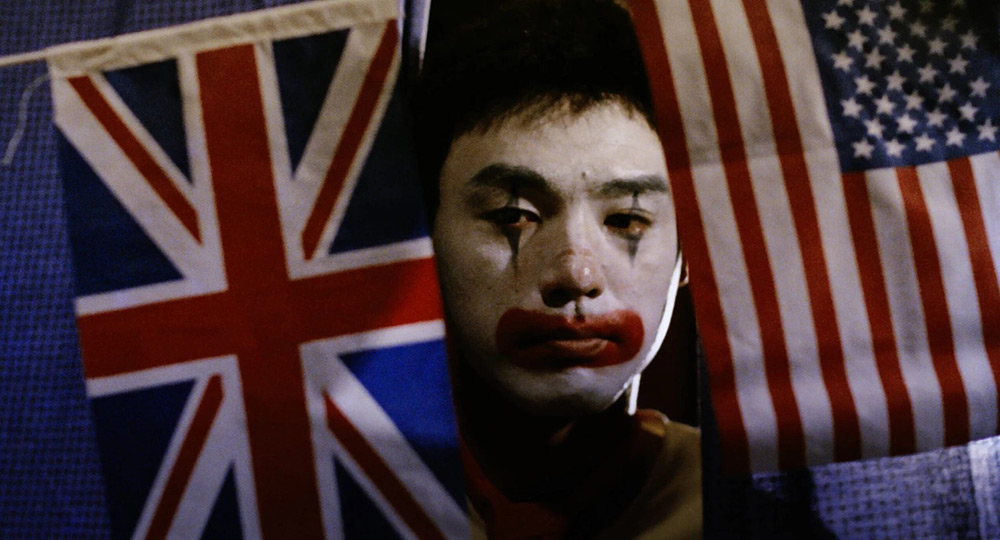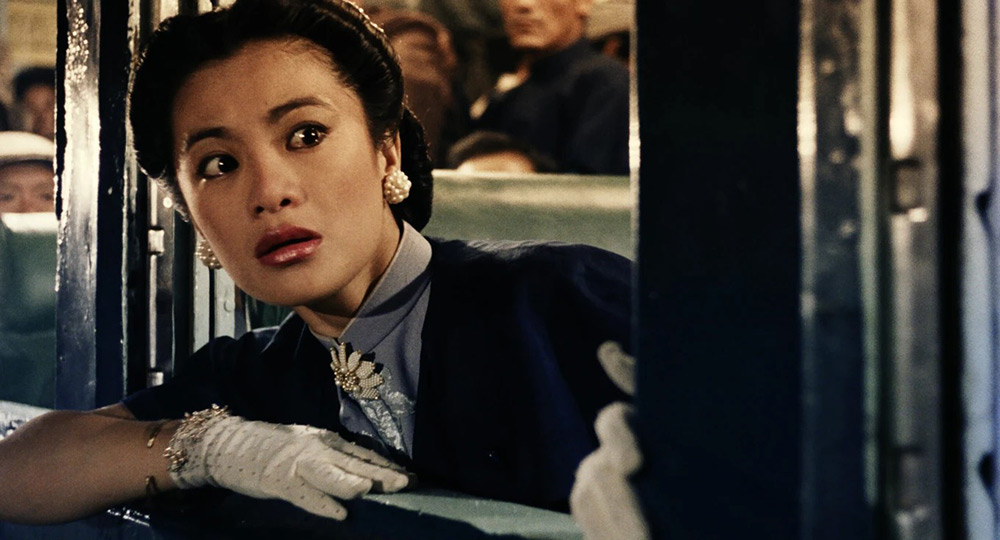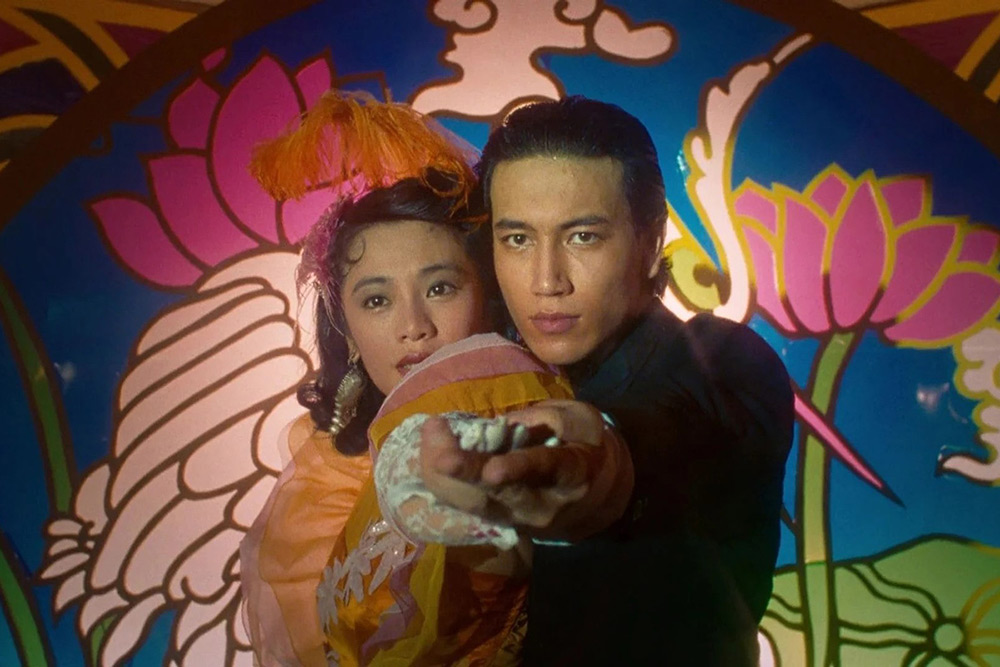When Shanghai Blues was released in 1984, it marked a rebirth for Tsui Hark, the enfant terrible of the Hong Kong New Wave, who was on the verge of quitting filmmaking altogether. The film launched Tsui's now legendary production company Film Workshop, which he co-founded with Nansun Shi, and kicked off the beginning of a new creative chapter of genre experimentation and bold formal invention in his career. Shanghai Blues returns to the big screen 40 years later in a brand new 4K restoration, with a re-dubbing featuring multiple Chinese dialects that match the linguistic diversity of Republic era Shanghai.
I had the privilege of speaking with Tsui about the social textures of 1930s Shanghai, his inspirations from both Hollywood comedies and the Chinese Leftist Film Movement, his long and fruitful collaboration with composer James Wong, and his fascination with stories about mistaken identity. His answers are just as circuitous and paradoxical as his films: whimsical, melancholic, and full of energy. They not only offer us a way to look back at Shanghai Blues, but also a glimpse into the alchemy of an auteur concerned with reimagining the past to speak about the present.

Frank Yan: Shanghai Blues was the first film produced under the banner of the Film Workshop. What made you decide to open your own studio and choose this particular film as its first project?
Tsui Hark: The whole thing came from me thinking about retiring from the film industry. I didn't feel like I was doing the kind of filmmaking that I liked. I thought that maybe it was not the right era for my filmmaking career. I was very naïve to think about retiring.
During this period, I heard a lot of very interesting stories from friends. One of the stories was about two girls who have a mistaken identity and make a lot of funny mistakes during a performance. I thought that was a very interesting idea that could be a movie. Then I started writing a script.
When I got to the actual production process, I had questions about how I would pitch it to a producer. Back then, they had a very strong idea about how movies should be made and how the market should be planned according to the kind of movies that should be distributed. I was pretty tired of that kind of movie, so when I came up with the story for Shanghai Blues, I was really skeptical about the producer accepting my pitch and allowing me to produce such a film. By some kind of occasion, I was given the chance to make it. I thought I should have a new company of my own to make it. At the time, Nansun Shi and I thought it would only be a one-project company and that’s how everything started.
FY: Prior to Shanghai Blues you made All the Wrong Clues [1981], which is also set in the Republic era. After Shanghai Blues you made another film set during that same period: Peking Opera Blues [1986]. What is your fascination with this particular era of Chinese history?
TH: For All the Wrong Clues, I thought it would be interesting to make fun of generic Hollywood detective movies. That's why it was put in that era. It was supposed to have a very vague background.
But for Shanghai Blues, it was very clear that the background was 1938. It's a year when everybody was thinking about moving around and I thought it could be a very serious topic. That's why the film was set in the 1930s.
The reason I made Peking Opera Blues after Shanghai Blues is because during the production of Shanghai Blues, I was inspired by some of the Peking Opera elements and performers. There is one scene, which I cut out from the final version of the movie because I thought it was not appropriate, that is a Peking Opera scene. I was so inspired by the scene of Peking Opera that I thought that I could make a movie about Peking Opera in the form of comedy. So I started to think about Peking Opera and comedy right after Shanghai Blues. It's easy for people to come up with the conclusion that I was attached or possessed by the period of the ‘40s, but I actually did not intend to do that. I simply thought that it would be quite appropriate to put the story in that period.
FY: You mentioned the influence of Hollywood genres, and I think Shanghai Blues is very much a screwball comedy and a backstage musical. Can you talk about the influence of classic Hollywood on you?
TH: But you see, if you talk about Shanghai Blues, we actually took references from the black-and-white oldie movies from Shanghai. I did research on the situation in Shanghai during that time period in all aspects: arts, characters, and also the social background. I took a lot of material and references from old Chinese movies.
If you take the Hollywood movie as a blueprint or inspiration source, I think you would not come up with Shanghai Blues because [my film] is not glamorous. Hollywood movies from the ‘40s and ‘50s are pretty much like a dreamland of stars and wonderful lifestyles, but Shanghai Blues is about poor people. They are lost and neglected. They are the people who struggle to get into the mainstream of the big city. That’s something you have to get from old Shanghai movies.
But I think comedy is regarded as a universal [narrative] device. If you use common humor as a base to create entertainment, it becomes something that we can share with people from different cultures. I think it is important that we understand what kind of story we are telling and what specific cultural background we are creating; however, we still need some kind of universal common humor as a base so that we can be entertained by the movie [across cultures].
I definitely think that watching Chaplin, Mel Brooks, Woody Allen, George Cukor, and many more good comedy directors for many years gave me a lot of inspiration in terms of how I think of comedy. But when you actually do the comedy, you have to get yourself out of it. Otherwise, you will be stuck with all these inappropriate kinds of arrangements that would not fit your story.

FY: I can absolutely see the influence of the ‘30s and ‘40s Chinese Leftist Film Movement in Shanghai Blues. You mentioned that the film was inspired by the idea of these two women and a man in a love triangle. This kind of relationship keeps popping up throughout your filmography, both in Shanghai Blues and your latest film, Legend of the Condor Heroes: The Gallants [2025], as well as Green Snake [1993].
It’s not really the topic of triangular relationships that I’m interested in, but stories about misunderstanding. In Shanghai Blues, the hero of the story mistakes the identity of another girl for the girl he’d been waiting for before wartime. This sort of thing can be the basis of a triangular relationship, but it's more like a comedy and a tragedy.
He didn't realize that the person he really hated was the person he was waiting for. It relates to a kind of tricky human nature. The basic urge of the pursuit of happiness is actually very flimsy. It's very weak. It can be achieved very easily at a point and then it's gone—it won't happen again. This is the kind of thing I want to talk about in Shanghai Blues. That's why it's a story about separation, making mistakes, and people being controlled by history who cannot make decisions for themselves. The whole era is pressuring them to stay inside its system.
FY: I’d like to ask about your collaborations with the legendary musician James Wong Jim. This was your first collaboration with him. He then composed a lot of iconic music for your films, including The Swordsman Trilogy [1990-1993] and the Once Upon a Time in China franchise [1991-1994]. Was he involved with Shanghai Blues from the get-go?
TH: Yes, because the movie is about singing and music. We definitely needed the music and the songs before we started shooting. Very early on, I tried to get him to write a theme song, and I found out that he was pretty interested in the story. That's why he provided me with the theme song while also voluntarily giving me other songs and music. It was kind of weird because even though we knew each other at the time, we weren’t friendly enough for me to expect him to do that. When he did, I felt like he was my savior. It was a low budget movie, and also the first movie done by our own company, so we had to be very aware of how the money was spent. When somebody gives you support with such creative input, it’s impossible to refuse.
At the same time, I shamelessly involved him in more than music writing. I talked to him about some scenes and asked his advice in terms of how things could be done according to his way of looking. After this movie, I found out more about him, and I started to be more curious about his ability to make a movie more magical and wonderful with music. That’s why I became sort of attached to his involvement, in the sense that I’d rely on his music to make the movie more powerful and more attractive to the audience. That's how we ended up doing all of these films since Shanghai Blues.

FY: You made a few changes with the new restoration and the most noticeable one is re-dubbing it with Shanghainese, Mandarin, and other dialects. What's the reason for this? How did you direct the voice performances in this new dubbing, especially with Sabrina Zhuang, who is also in your new film Legend of the Condor Heroes?
TH: 1984 was the year before mainland China opened up to outside visitors. We made Shanghai Blues without really knowing a lot about Shanghai. All I learned was from those old movies made in Shanghai a long time ago. After releasing the movie, I was given the chance to go to Shanghai. I felt that I needed to know what it really looked like compared to the movie. I found out lots of things that were not real. That’s why, for the 40th anniversary of Shanghai Blues, I thought that we could make the film more authentic or realistic by giving it more Shanghai elements.
In the beginning, I thought, “Why don’t we just change Sylvia Chang’s entire dialogue into Shanghainese? Maybe that will help make it more Shanghai than before?” And if we have Shanghainese, you definitely need to have other dialects, because Shanghai is a place where people come from every corner of China. So, we had Sally Yeh’s voice dubbed by Sabrina Zhuang, who's from Northeastern China. They have a totally different accent, humor, and mannerisms that don't match sophisticated, civilized city life and social behavior. I thought that would be a pretty good match for that character. Then, we had a problem with Kenny Bee because Kenny is not good at Shanghainese, even though he has lived in Shanghai for a long time. We tried to have him speak Shanghainese but it failed. So we decided that he should come from Canton, which meant his mother tongue would be Cantonese. So it was easy for him to have dialogues explaining why he's in Shanghai and why he has that kind of accent. The whole thing about redubbing and the dialogue changes were things that we couldn’t do before, but now could. We tried not to disturb or sidetrack the story, while still having funny dialects coming from the different regions of China. Every dialogue would have its own humor and its own set of values.
Shanghai Blues starts Friday at the 4 Star Theater.
Previously:
Shanghai Blues screens tomorrow, July 3, at Metrograph as part of the series “Shanghai Dreams.”



